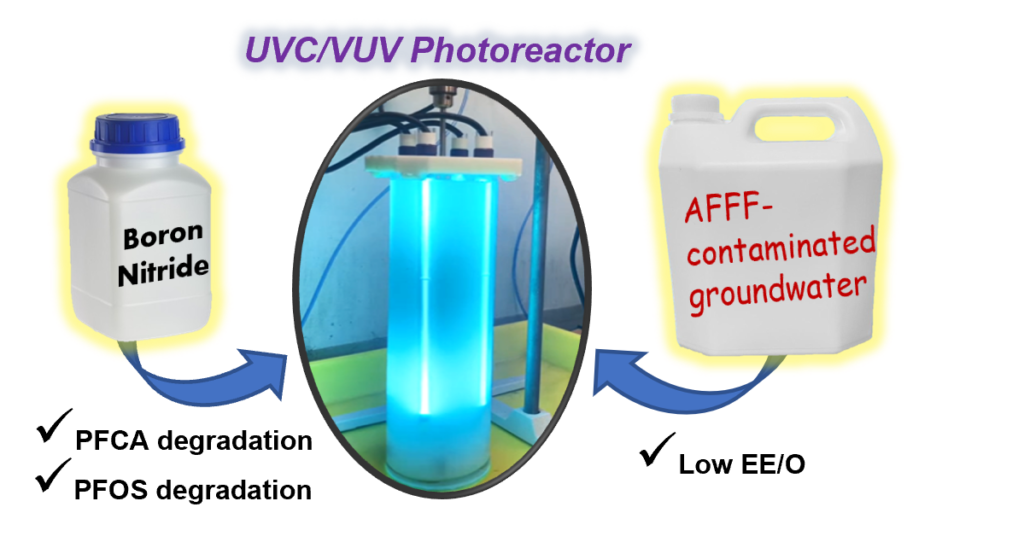Poly- and perfluoroalkyl substances (PFAS) represent a class of highly recalcitrant compounds used in textile, furniture, and packaging products, as well as in aqueous film-forming foams for combating fuel fires. Groundwater and surface water contamination from chemical plants and military installations is a major concern, as effective treatment options remain elusive. Among the options for destructive degradation, photocatalytic treatment has been overlooked since most semiconductor photocatalysts show poor activity against PFAS. The Cates Lab, in collaboration with Rice University, is utilizing hexagonal boron nitride microparticle catalysts, which show remarkable activity in degrading PFAS under UVC and vacuum UV irradiation. Ongoing work includes:
- Optimization of photoreactor design for improved photocatalytic and photolytic treatment efficiency
- Elucidating boron nitride surface chemistry and its influence on photocatalytic activity and stability
- Development of improved photocatalyst embodiments
- Study of the adsorption behavior of PFAS compounds to photocatalyst surfaces
This work is funded by DoD’s Strategic Environmental Research and Development Program (#ER18-1599)

Qanbarzadeh et al, Environmental Science & Technology Letters. 2023, in press